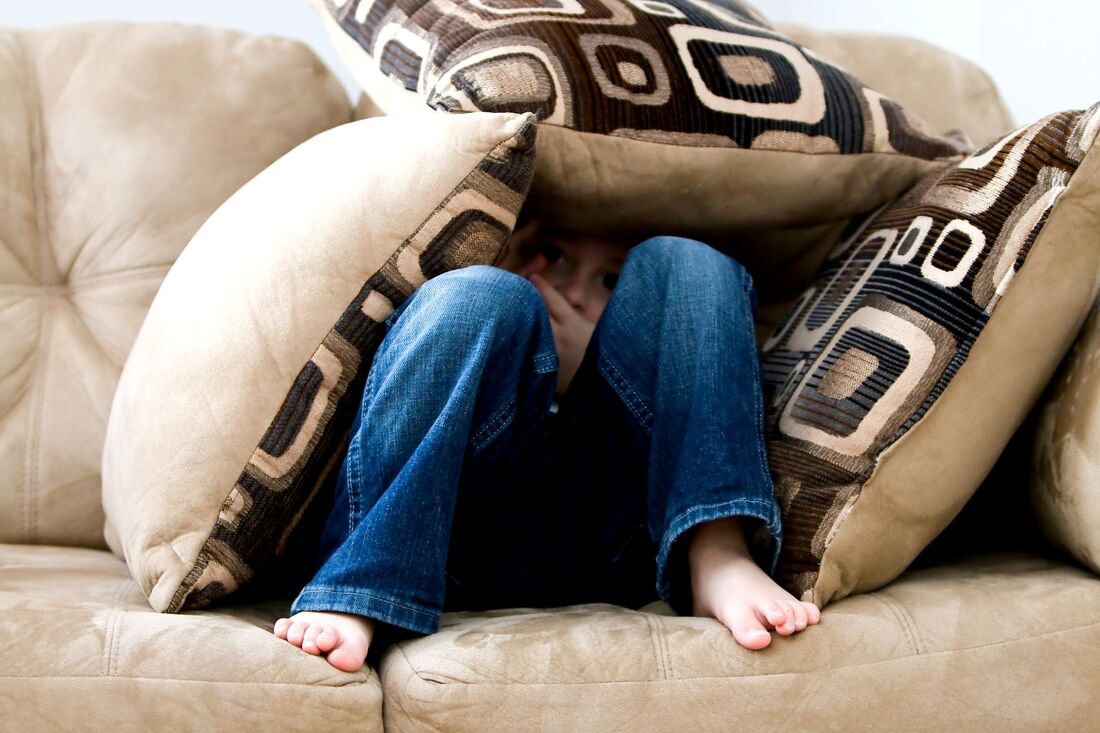|
Photo by Pixabay
Fear is a natural thing. It is indeed what keeps everyone secure and safe. Fear is not a logical thought—instead, an irrational emotion. Being frightened is an experience you can not buy. Humans are a society that adores fear. People thrive off of it; creating horror movies, shows like "Fear Factor," and the media are only a few examples. Similarly, some people are afraid to leave their houses and are possibly restricted to a single room. So what is fear? What is the purpose of being scared? Why will some people scream and run when they see a snake while others breed and collect them for their love of these majestic reptiles? Fear is a feeling humans have all dealt with at one time or another. It is something you first experience as children and are conditioned to respond to in many different ways. A controversial experiment in fear can also refer to general anxiety, as in Arachnophobia (fear of spiders) or Claustrophobia (fear of being closed in areas). These fears occur not automatically from a looming or present danger but from a perceived threat, which can be just as scary to some. A German proverb even says that fear makes the wolf bigger than he is. For most people, fear is a sickening and horrible feeling, which can sometimes be debilitating. 5 Things You Never Knew About Fear Fear is a person's survival response. Some people — horror movie buffs and roller-coaster fans — thrive on it, while others avoid it. Have you ever wondered why? Read on and know the five (5) things about fear. 1. Fear Can Make One Foggy. Some parts of your brain are firing up; others are shutting down. The cerebral cortex (the area of the brain that harnesses judgment and reasoning) becomes impaired when the amygdala senses fear. So now it is not easy to think clearly or make good decisions. As a result, you might throw your hands up and scream when approached by an actor in a ghost house, unable to rationalize that the threat is inaccurate. 2. Fear Is Physical. Fear is experienced in your mind as it triggers a strong physical reaction in your body. Your amygdala (this is the small organ in the middle of your brain) goes to work as soon as you recognize fear. It alerts your nervous system, setting your body's fear response into motion. Stress hormones like cortisol and adrenaline are released—your blood pressure and heart rate increase. You start breathing faster. Even your blood flow changes — blood flows away from your heart and into your limbs, making it easier for you to start running for your life, throwing punches, or running for your life. Your body is preparing for fight-or-flight. 3. Fear Can Become A Pleasure. But why do people who love haunted houses, roller-coasters, and horror movies enjoy getting caught up in those scary, stressful moments? Because the thrill does not necessarily end when the film or ride ends. Through the excitation transfer process, your brain and body remain aroused even after your scary experience is over. 4. Fear Keeps You Safe. Fear is a biological and natural condition that all experience. It would help if you experienced fear because it keeps you safe. 5. Fear Is Not Phobia. If you are slightly uneasy about swimming in the ocean after watching "Jaws," the movie did what it set out to do. But if you find yourself traumatized, terrorized, and unable to function at the mere thought of being on the beach, you might be experiencing more than just fear. The difference between phobia and fear is simple. Fears are common reactions to objects or events. But fear becomes a phobia when it interferes with your ability to function and maintain a consistent quality of life. You may have a phobia if you start taking extreme measures to avoid water, spiders, or people. Realization Fear is a complicated human emotion that can be healthy and positive but has negative consequences. It can make or break a person. As Wendy Veronica Lisare wrote, the Kingdom Keys in The Other Side Of Fear Book are courage, joy, hope, freedom, fulfillment, and knowing that she is a daughter of God. In her book, Veronica shared her story of moving from her crippling fear, abuse, and low self-esteem to knowing the limitless love of God. Here, Veronica shares the intimate details of her life's journals, from having an unhappy childhood, a loveless marriage, a divorce, a battle with cancer, and a loss of a granddaughter to having a nursing job and a career as a minister of the truth of the gospel of Jesus Christ. The testimony of Veronica and the spiritual tools she learned along her life's journey will inspire all readers to move through their challenges to God's perfect love and the other side of fear. On the other hand, if fear or phobia affects your life in harmful and inconvenient ways, talk to your doctor, who can aid you in determining the kind of treatment you might need.
0 Comments
Leave a Reply. |

 RSS Feed
RSS Feed
